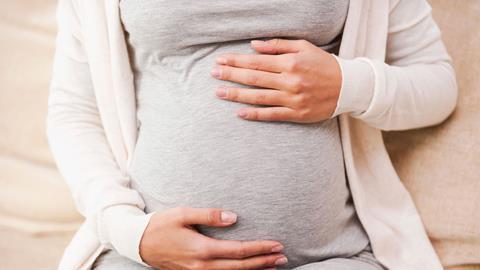Reports in the media tell of babies born by international surrogacy then left in limbo in the foreign countries of their birth. With Covid-19 restrictions and borders locked, families are not able to travel to collect their babies and it is not yet known when this will be possible.

Most of these families who entered into international surrogacy arrangements would have been at the birth of their child and had the baby handed over to them immediately. The baby will, in almost every case, be genetically related to one or both of the intended parents – the term used for families becoming parents by surrogacy.
Many of these families having babies by surrogacy will have been through years of distressing and unsuccessful fertility treatment. Covid-19 presents yet another hurdle in their journey to become parents.
A recent media report told the story of a baby born by surrogacy in the USA. The intended parents were not able to enter the country to assume care of their child. There was nowhere for the baby to go while waiting for the borders to open and no option other than for the surrogate taking the baby home to care for them indefinitely.
With this comes the risk that the surrogate and the baby form a crucial early attachment. The surrogate may then find it hard or impossible to part with the baby once the intended parents can come to collect her. This could result in complex cross-country litigation to decide on the baby’s future, with inevitable distress and expense for everyone involved. The child’s future and legal status will be uncertain while litigation continues.
A BBC news report on 15 May filmed 35 newborns being cared for by nannies in a hotel room in Ukraine, waiting for the Ukraine borders to reopen so their intended parents can come to collect them. In normal circumstance, these babies would have been with intended families, who would have been able to take over the care of their child at birth or soon after. The children are, instead, being cared for in a situation analogous to institutional care where a rota of carers is put in place. Despite the good intention of these carers, these children will not be receiving the individual attention a baby needs to bond and thrive with their new parents.
In most countries of destination for international surrogacy, the laws governing surrogacy arrangements will be very different from our own in relation to legal parentage of the babies and the legal status of the surrogate and the intended parents. This presents intractable scenarios of conflict of private international law.
Under Ukrainian law, it is the English intended parents of a baby born by surrogacy in that country who are the legal parents of the child. In her country, the surrogate will have no status in law in relation to the child. This applies even where the surrogate has a genetic link with the baby she has given birth to.
In the US, the law on surrogacy varies from state to state and many states do not allow surrogacy at all. For those that do, a surrogate may well have had her legal rights to the child terminated pre-birth and the intended parents registered as the children’s legal parents on the birth certificate.
However, English surrogacy law is quite different. Here surrogacy is governed by the Human Fertilisation and Embryology Act 2008 (the HFEA). Under this statute, it is the woman who gives birth to a child who will always be the legal mother. This is regardless of whether she gives birth in this country or abroad, whether she has a genetic relationship with the child, or if the baby’s birth certificate names the intended parents and not the surrogate as the parents. Further, if the surrogate is married and her husband did not object to the surrogacy, it is English law that he is the legal father of the child.
Additionally, if the intended father is the genetic parent of the baby, is a British citizen and the surrogate is not married, he will be the legal father. The baby will also be regarded as a British citizen and will be able to be obtain a British passport.
While this is positive, the intended father will be sharing parental responsibility with the surrogate and the intended mother will have no legal rights at all under English law. It is only if a parental order is made in the English courts, under the HFEA, that the parental rights of the surrogate will be terminated and the intended parents will become the full legal parents of the child, as in adoption.
Currently surrogacy law in England, Wales and Scotland is under review by the Law Commission and their consultation document was published in 2019. The Law Society’s Children’s Law Sub Committee responded at length to the consultation.
Proposals include the recommendation that domestic surrogacy will, in many cases, cease to be subject to court proceedings. However, for international surrogacy cases, it will still be required for English intended parents to apply in the High Court for parental orders to acquire full and exclusive parenthood for their children. This is aimed at reducing the risk of international child trafficking and exploitation of the surrogates.
The current law and proposed changes will not, however, address the plight of the babies abroad waiting for their parents to collect them - another unforeseen consequence of the Covid-19 pandemic.
Naomi Angell, adoption specialist from Osbornes Law and member of the Law Society’s children law sub committee
































No comments yet